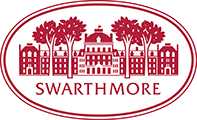Liberal arts colleges are under increased scrutiny of their institutional approach for ensuring accessibility of web and other digital communication methods. While the Department of Justice (DOJ) and the Department of Education’s Office for Civil Rights (OCR) have issued guidance regarding institutional obligations for ensuring access for students with disabilities, colleges still struggle with how to best address such obligations within the context of policy, procedure, and implementation.
The challenge of accessibility is systemic in nature and requires an organizational approach. Being reactive to DOJ and OCR investigations can be resource-intensive and may not always promote the most sustainable solutions. We strongly believe that approaching the problem as a group with different experiences, knowledge, and backgrounds can help us all be more effective and provide useful knowledge we can take back to our individual institutions.
Swarthmore College is a member of CLAC, The Consortium of Liberal Arts Colleges. On April 28, Swarthmore College and Mt. Holyoke College brought together 15 CLAC schools to focus on the challenges of Advancing Digital Accessibility Programs at Liberal Arts Colleges (ADAPALC).
Here are a few takeaways from the meeting:
- Providing students with accessible course material is a big challenge for all of us.
- Some institutions have internally mandated accessibility goals in all areas of digital accessibility including websites, learning management systems, libraries, and course materials. Others have grassroots personnel who are interested in the problem but have little administrative support. Few schools have a position dedicated to bringing about institutional accessibility.
- Some have had very good success enlisting campus-wide support. Smith College reported nearly all their course material meets minimum accessibility standards. This was accomplished through an active communications and training plan driven by a partnership between ITS, Provost and their libraries.
- Wesleyan reported surprising success when they partnered with WebAIM in several campus-wide training sessions. In their case, there were separate sessions for web developers, web content editors, and faculty and staff.
- When digital accommodations were needed there was an even split between Student Disability Services and others such as libraries, faculty, and other staff.
- The group found the Accessibility Roadmap developed by Rob Eveleigh was an extremely useful tool to begin developing a plan and milestones when a college decides to focus on accessibility
- The Moodle File Scan, developed by Swarthmore College to help discover documents that do not meet minimal accessibility standards was also greeted with great interest. This is an open source project and a few schools (Lafayette College and Hampshire College) who attended ADAPALAC have contributed to its development. Schools who have used it also spoke highly of its usefulness.
- Perhaps one of the best things to come out ADAPALAC was the formation of a network of similar institutions.
Overall, the productivity and opportunity to network with peer institutions was very rewarding. Our hope is that we are able to meet again to learn more, share more successes, and discover roadblocks and brainstorm possible solutions.
